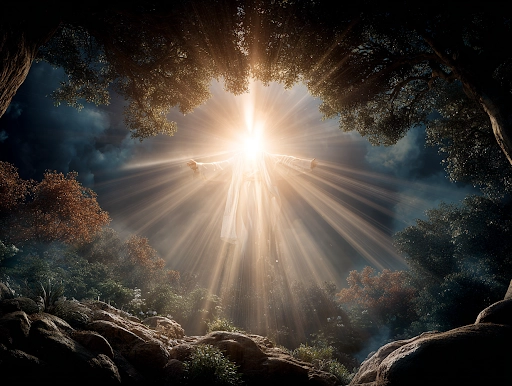The opening verses of John’s Gospel are unlike any other. Instead of beginning with a genealogy (like Matthew and Luke) or a fast-paced introduction to Jesus’ ministry (like Mark), John begins with eternity itself. He presents Jesus as the Word (Logos) — eternal, divine, and the very agent of creation. This prologue (John 1:1–18) is not only one of the most profound theological passages in Scripture but also a roadmap to understanding who Yeshua HaMashiach truly is.
“In the beginning was the Word. The Word was with God, and the Word was God. He was with God in the beginning. All things were made through Him, and apart from Him nothing was made that has come into being.” (John 1:1–3, TLV)
Here John makes three incredible claims:
This establishes that Jesus is not just a moral teacher or prophet but God Himself, the eternal Son, active in creation with the Father (cf. Colossians 1:16).
“In Him was life, and the life was the light of men.”
The Greek word for “life” here is zōē (ζωή), which speaks not of mere biological existence (bios) but of eternal, abundant life that only comes from God. This zōē life is the fullness of being — spiritual, eternal, and transformative.
The word “light” — phōs (φῶς) — symbolizes revelation, truth, and divine clarity. Together, these show us that Jesus not only sustains existence but infuses life with meaning and illuminates humanity with truth (cf. John 8:12).

“He was in the world, and the world was made through Him; but the world did not know Him. He came to His own, but His own did not receive Him.”
Theological Insight:
John emphasizes the tragic irony of the incarnation:
This rejection reveals both human rebellion and God’s humility — the eternal Word stepped into time and space, only to be despised by those He came to save (cf. Isaiah 53:3).
Key Greek Words:
“But whoever did receive Him, those trusting in His name, to these He gave the right to become children of God… And the Word became flesh and tabernacled among us. We looked upon His glory, the glory of the one and only from the Father, full of grace and truth.”
Here lies the heart of the Gospel:
“Out of His fullness, we have all received grace on top of grace. Torah was given through Moses; grace and truth came through Yeshua the Messiah. No one has ever seen God; but the one and only God, in the Father’s embrace, has made Him known.”
Through Jesus we experience overflowing grace — not earned, but freely given. The Law pointed us to God’s holiness, but grace and truth are fully revealed in Christ. He makes the invisible God known (cf. Hebrews 1:3).
John’s prologue reminds us that Jesus is the eternal Word, Creator, Life, and Light. Though the world rejected Him, those who receive Him become God’s children. His incarnation — the Word becoming flesh — reveals God’s glory, grace, and truth in their fullness.
The invitation remains today: to walk in His light, to receive His zōē life, and to live as children of God. The darkness has not overcome the Light, and it never will.